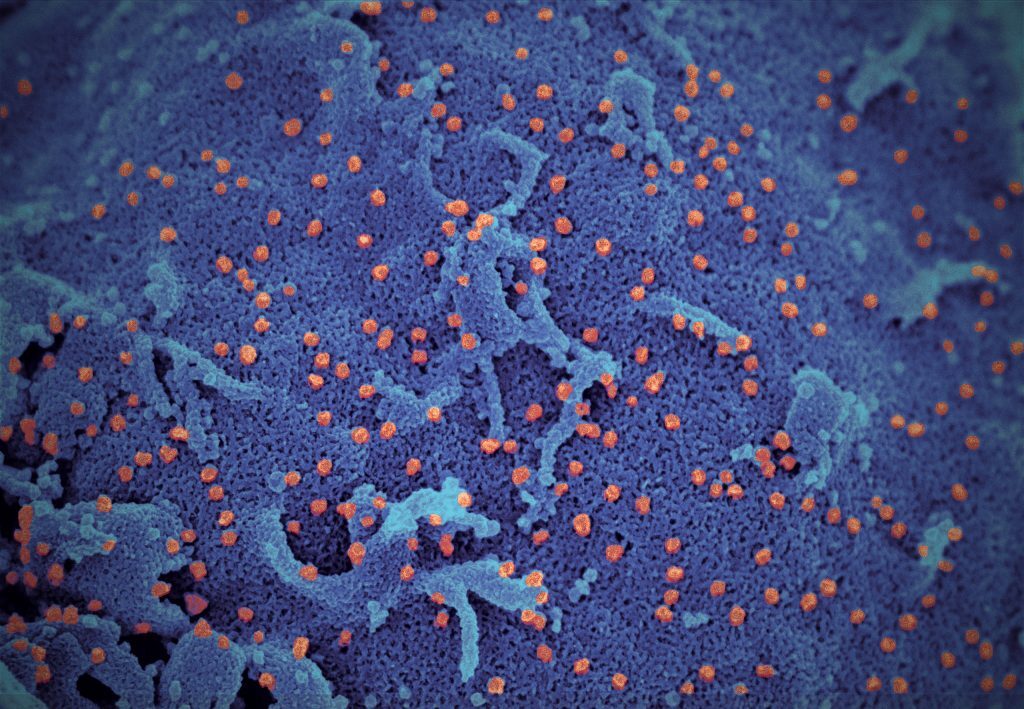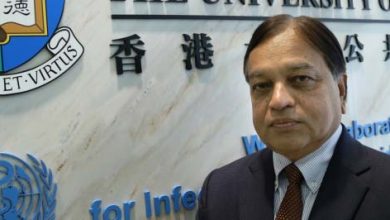HKU documents the world’s first case of COVID-19 reinfection
HKU researchers have documented the world’s first case of reinfection by the SARS-CoV-2 virus. While reinfection has been reported before, the study by HKU’s Department of Microbiology is the first in the world to confirm that a person was infected a second time by a different virus.
According to a statement by HKU’s Department of Microbiology, the researchers showed that the genome sequence of the virus strain in the first episode of COVID-19 infection is clearly different from the genome sequence of the virus strain found during second episode of infection. This is the world’s first documentation of a patient who recovered from COVID-19 but got another episode of COVID-19 afterwards.
The research has been published in the international medical journal Clinical Infectious Diseases.

Background
Before this report, many believe that recovered COVID-19 patients have immunity against reinfection because most developed a serum neutralizing antibody response. However there is evidence that some patients have waning antibody level after few months. Moreover there are also reports that the virus RNA can wax and wane in the respiratory secretions of convalescent patients for up to 3 months. It is unclear whether these patients are prolonged virus shedders or have reinfection by another strain of SARS-CoV-2 as no viral genome sequencing is performed to differentiate these two possibilities.
Study method and findings
An apparently young and healthy patient had a second episode of COVID-19 infection which was diagnosed 4.5 months after the first episode. Viral genomes from first and second episodes belong to different clades/lineages. A total of 24 nucleotides were different between the viruses from the first and second episode. Amino acid differences can be found be found in 9 proteins, including a 58-amino acid truncation of ORF8 protein that was present only in the virus from the first infection.

Research implications
This case illustrates that reinfection can occur just after a few months of recovery from the first infection. Our findings suggest that SARS-CoV-2 may persist in the global human population as is the case for other common-cold associated human coronaviruses, even if patients have acquired immunity via natural infection. Since the immunity can be short lasting after natural infection, vaccination should also be considered for those with one episode of infection. Patients with previous COVID-19 infection should also comply with epidemiological control measures such as universal masking and social distancing.
About the research team
- Kelvin Kai-Wang To, Clinical Associate Professor, Department of Microbiology, Li Ka Shing Faculty of Medicine, HKU
- Professor Ivan Fan-Ngai Hung, Clinical Professor, Department of Medicine, Li Ka Shing Faculty of Medicine, HKU
- Professor Kwok-Yung Yuen, Henry Fok Professor in Infectious Diseases, Chair Professor of Department of Microbiology, Li Ka Shing Faculty of Medicine, HKU, Co-Director of the State Key Laboratory of Emerging Infectious Diseases and Academician of the Chinese Academy of Engineering
Related news reports
Science News: A man in Hong Kong is the first confirmed case of coronavirus reinfection
STAT: First Covid-19 reinfection documented in Hong Kong, researchers say
New York Times: First Documented Coronavirus Reinfection Reported in Hong Kong
BBC: Hong Kong reports ‘first case’ of virus reinfection
CNN: Hong Kong man ‘first case’ documented of getting coronavirus twice, researchers say



